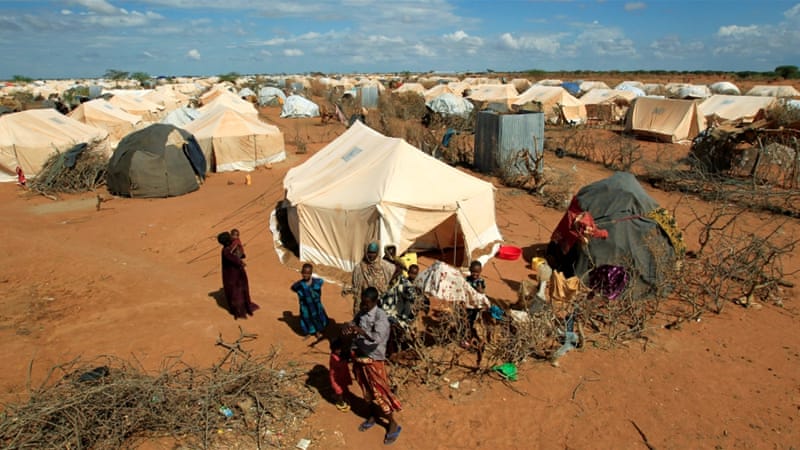Kenya has banned movement in and out of two huge refugee camps as part of containment measures aimed at preventing the spread of the coronavirus among the vulnerable communities.
Interior Minister Fred Matiangi said on Wednesday the restrictions apply to the Dadaab camp in eastern Kenya, home to 217,000 people, and the Kakuma camp in northwestern Kenya, home to 190,000 people.
Kenya, which has recorded 384 coronavirus cases to date, has yet to report any infections in the two camps, which house refugees from Somalia, South Sudan and Ethiopia – some of whom have lived there for almost 20 years.
Health experts and humanitarian groups have long warned an outbreak of COVID-19 – the disease caused by the new coronavirus – in densely populated refugee camps would be catastrophic.
In Dadaab, “a possible outbreak of the coronavirus would be a disaster with a quarantine capacity for only 2,000 people in place and only one dedicated COVID-19 health facility including 110 beds for more than 270,000 people,” Philippa Crosland-Taylor, of Geneva-based organisation CARE, said on Twitter.
CARE’s figure of 270,000 includes undocumented refugees and people living in host communities.
No full lockdown
Kenya has not imposed a full lockdown, but has imposed a dusk-to-dawn curfew and similarly blocked movement in and out of Nairobi, three coastal towns and the northeastern county of Mandera.
UN refugee agency spokeswoman Eujin Byun told AFP news agency the new restrictions would not mean a “significant change” for the refugees.
She said the issuance of movement passes allowing them to travel out of the area has been halted since the end of March.
However host communities are now also blocked from leaving the area, and movement into the area is restricted.
Humanitarian movement will be allowed on a “case by case” basis, and aid and vital cargo will still be allowed into the area.
Speaking to Al Jazeera last month, Byun said having so many people living in close proximity was one of the major risk factors for the spread of the virus, while ensuring that refugees have access to clean water and soap – two of the most effective weapons against it – was critical.
She said the UNHCR had altered its operations in the camps to try to avoid gatherings. For example, to reduce the contact between residents and humanitarian workers, it plans to distribute two months’ food rations at once, whereas in the past, they were distributed monthly or every two weeks.
The agency had also stopped sending outside missions into the camps to prevent a potential spread of the virus.
Information was also being sent to residents via mobile phone apps such as WhatsApp, she added, to limit social gatherings and “to reduce fear and panic in the refugee camp and prevent any kind of misinformation”.





